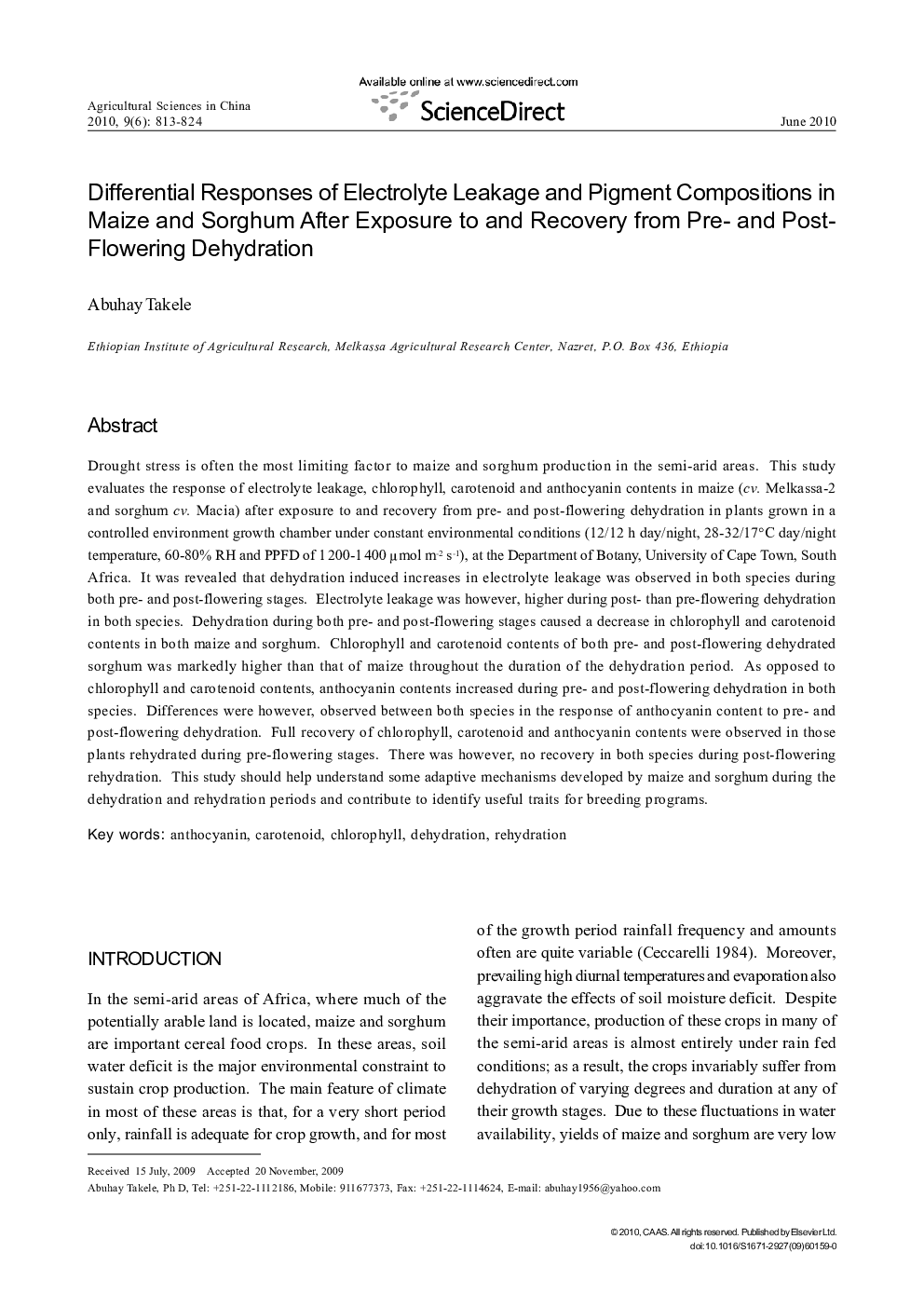| Article ID | Journal | Published Year | Pages | File Type |
|---|---|---|---|---|
| 4490127 | Agricultural Sciences in China | 2010 | 12 Pages |
Drought stress is often the most limiting factor to maize and sorghum production in the semi-arid areas. This study evaluates the response of electrolyte leakage, chlorophyll, carotenoid and anthocyanin contents in maize (cv. Melkassa-2 and sorghum cv. Macia) after exposure to and recovery from pre- and post-flowering dehydration in plants grown in a controlled environment growth chamber under constant environmental conditions (12/12 h day/night, 28–32/17°C day/night temperature, 60–80% RH and PPFD of 1 200–1 400 μmol m−2 s−1), at the Department of Botany, University of Cape Town, South Africa. It was revealed that dehydration induced increases in electrolyte leakage was observed in both species during both pre- and post-flowering stages. Electrolyte leakage was however, higher during post- than pre-flowering dehydration in both species. Dehydration during both pre- and post-flowering stages caused a decrease in chlorophyll and carotenoid contents in both maize and sorghum. Chlorophyll and carotenoid contents of both pre- and post-flowering dehydrated sorghum was markedly higher than that of maize throughout the duration of the dehydration period. As opposed to chlorophyll and carotenoid contents, anthocyanin contents increased during pre- and post-flowering dehydration in both species. Differences were however, observed between both species in the response of anthocyanin content to pre- and post-flowering dehydration. Full recovery of chlorophyll, carotenoid and anthocyanin contents were observed in those plants rehydrated during pre-flowering stages. There was however, no recovery in both species during post-flowering rehydration. This study should help understand some adaptive mechanisms developed by maize and sorghum during the dehydration and rehydration periods and contribute to identify useful traits for breeding programs.
